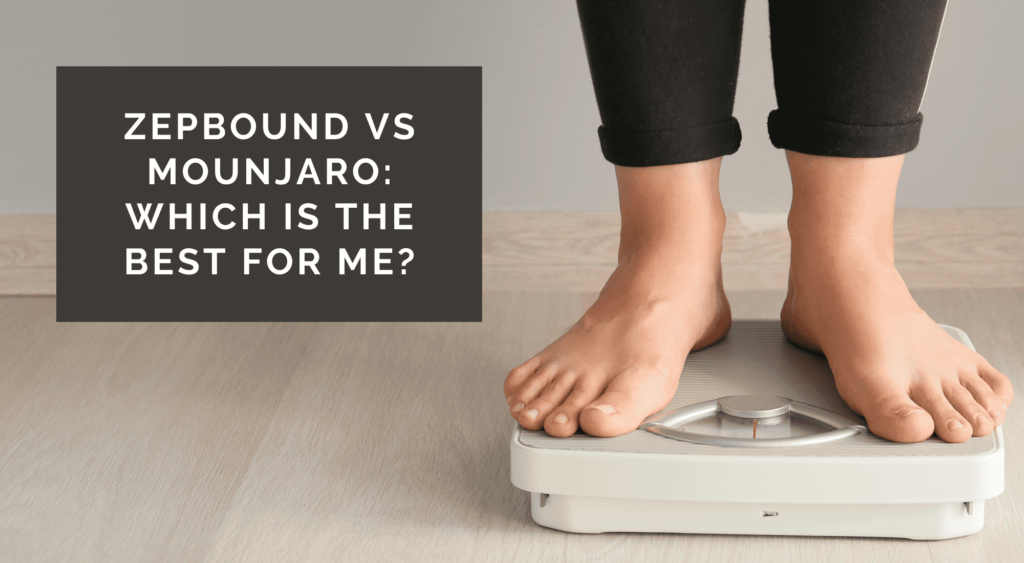
In recent years, weight management has become a top priority for many individuals seeking a healthier lifestyle. Obesity rates have been on the rise, prompting a surge in demand for effective weight loss solutions. Among the most prominent medications in the market are Mounjaro and Zepbound, two drugs that have gained significant attention for their potential to aid in weight reduction. However, with so many options available, it’s important to understand how these medications compare in terms of effectiveness, safety, side effects, and overall value.
This article provides an in-depth, comparison of Mounjaro vs Zepbound, breaking down each medication’s benefits, risks, and suitable use cases. By the end of this article, readers will have a clear understanding of which drug might be more suitable for their individual weight loss goals.
What Is Mounjaro?
Mounjaro is a prescription medication developed to aid in weight loss, particularly for individuals struggling with obesity or overweight conditions. The active ingredient in Mounjaro is tirzepatide, a medication designed to regulate blood sugar levels and assist with fat loss. It works by mimicking the actions of two hormones that help control blood sugar and appetite—GLP-1 (glucagon-like peptide-1) and GIP (gastric inhibitory polypeptide).
How Does Mounjaro Work?
Mounjaro’s mechanism of action is based on its ability to stimulate both GLP-1 and GIP receptors. These hormones play a crucial role in regulating insulin secretion, controlling appetite, and influencing glucose metabolism. By enhancing the effects of these hormones, Mounjaro helps individuals:
- Control Blood Sugar Levels: As an injectable medication, Mounjaro helps regulate blood glucose, making it particularly beneficial for individuals with type 2 diabetes.
- Suppress Appetite: The drug reduces hunger and cravings, leading to reduced calorie intake, which contributes to weight loss.
- Promote Fat Loss: Mounjaro also encourages fat breakdown by increasing metabolic activity, which helps users shed excess weight.
- Improve Insulin Sensitivity: By improving insulin sensitivity, Mounjaro supports more efficient energy utilization and reduces the risk of developing insulin resistance.
Benefits of Mounjaro
- Dual Mechanism of Action: Unlike other weight loss medications, Mounjaro’s ability to activate both GLP-1 and GIP receptors is a unique feature, offering enhanced benefits in blood sugar regulation and weight loss.
- Improved Weight Loss Results: Clinical studies have shown that Mounjaro can lead to significant weight loss in individuals who are obese or overweight, particularly when combined with a healthy diet and exercise plan.
- Management of Type 2 Diabetes: Mounjaro is FDA-approved for managing type 2 diabetes, making it a suitable option for people dealing with both obesity and diabetes.
- Once-Weekly Injection: Mounjaro is administered once a week via an easy-to-use injection, reducing the hassle of daily medication.
Side Effects of Mounjaro
While Mounjaro offers numerous benefits, there are potential side effects to consider:
- Gastrointestinal Issues: Common side effects include nausea, vomiting, diarrhea, and constipation. These symptoms are usually temporary and may subside as the body adjusts to the medication.
- Risk of Pancreatitis: There is a potential risk of developing pancreatitis, a condition where the pancreas becomes inflamed.
- Hypoglycemia: Although rare, Mounjaro can cause low blood sugar, especially when used in combination with other diabetes medications.
- Kidney Issues: Mounjaro may cause kidney-related side effects, particularly in individuals with pre-existing kidney conditions.
What Is Zepbound?
Zepbound is another weight loss medication that has recently emerged as a competitor to Mounjaro. The active ingredient in Zepbound is semaglutide, a GLP-1 receptor agonist that has been proven to help with weight loss and blood sugar management. Like Mounjaro, Zepbound works by regulating blood sugar, suppressing appetite, and promoting fat loss, making it an appealing choice for individuals struggling with obesity or type 2 diabetes.

How Does Zepbound Work?
Zepbound functions primarily through its activation of GLP-1 receptors. This hormone is naturally produced in the intestines and plays a significant role in regulating insulin secretion, glucose metabolism, and appetite control. By mimicking GLP-1, Zepbound offers several benefits:
- Appetite Suppression: Zepbound helps to suppress appetite by signaling to the brain that the body is full, thus reducing calorie intake.
- Blood Sugar Regulation: By enhancing insulin sensitivity, Zepbound helps regulate blood sugar levels, which is especially important for individuals with type 2 diabetes.
- Fat Reduction: Zepbound promotes fat burning by improving metabolic processes and increasing energy expenditure.
- Sustained Weight Loss: Clinical studies have demonstrated that Zepbound is effective for long-term weight loss when used in conjunction with a healthy lifestyle.
Benefits of Zepbound
- Proven Effectiveness for Weight Loss: Clinical trials have shown that Zepbound can help individuals lose a significant amount of weight, especially when combined with diet and exercise.
- Improved Blood Sugar Control: Zepbound is effective at managing blood glucose levels, which is particularly beneficial for people with type 2 diabetes.
- Once-Weekly Dosing: Like Mounjaro, Zepbound is administered once a week via injection, making it convenient and easy to adhere to.
- Long-Term Safety: Studies have shown that Zepbound is generally safe for long-term use, provided that the individual follows appropriate medical guidance.
Side Effects of Zepbound
While Zepbound is generally well-tolerated, it does come with some potential side effects:
- Gastrointestinal Discomfort: Similar to Mounjaro, Zepbound can cause gastrointestinal side effects, including nausea, diarrhea, and constipation.
- Increased Risk of Thyroid Tumors: There is an increased risk of thyroid tumors in animal studies, though this has not been definitively proven in humans.
- Hypoglycemia: Low blood sugar is a potential risk, particularly when used with other medications for diabetes.
- Possible Allergic Reactions: Some individuals may experience allergic reactions to the medication, although these are rare.

Mounjaro vs Zepbound: Key Differences
1. Active Ingredients and Mechanism of Action
- Mounjaro: Contains tirzepatide, which activates both GLP-1 and GIP receptors, making it a dual-action medication.
- Zepbound: Contains semaglutide, which exclusively activates GLP-1 receptors.
While both medications help with appetite control, blood sugar regulation, and fat loss, Mounjaro’s dual-action mechanism may offer additional benefits for some individuals, especially those struggling with insulin resistance.
2. Effectiveness in Weight Loss
Both Mounjaro and Zepbound have been shown to promote significant weight loss, but Mounjaro’s dual mechanism might provide slightly superior results in some cases. Clinical studies suggest that Mounjaro may lead to more dramatic weight loss compared to Zepbound, especially for individuals with higher body mass indexes (BMI).
3. Side Effects and Safety Profile
While both medications have similar side effects, including gastrointestinal discomfort and the potential for low blood sugar, Mounjaro’s risk of pancreatitis may be a concern for some users. Zepbound, on the other hand, has shown a potential risk for thyroid tumors in animal studies. Both medications are generally considered safe for long-term use, with appropriate medical oversight.
4. Approval for Diabetes Management
Mounjaro is specifically approved for the management of type 2 diabetes, making it an ideal choice for individuals who have both obesity and diabetes. Zepbound is not FDA-approved for type 2 diabetes management but is often prescribed off-label for this purpose.
5. Cost and Insurance Coverage
Cost is an important factor when considering prescription medications. Both Mounjaro and Zepbound can be expensive, especially without insurance coverage. However, prices can vary depending on insurance plans, and many patients may be able to access financial assistance programs.

Which Medication Is Right for You?
The decision between Mounjaro and Zepbound ultimately depends on your personal health goals, existing medical conditions, and budget. If you have type 2 diabetes and are looking for a medication that can help with both blood sugar regulation and weight loss, Mounjaro may be the better choice. If you’re primarily focused on weight loss and prefer a medication that targets appetite suppression and fat burning, Zepbound could be a great option.
It’s essential to consult with your healthcare provider to determine the most appropriate medication for your unique needs. Both Mounjaro and Zepbound have proven to be effective weight loss treatments, and with the right approach, either medication can help you achieve your weight management goals.
Conclusion
In the battle of Mounjaro vs Zepbound, both medications stand out as effective weight loss options for individuals struggling with obesity or overweight conditions. Mounjaro’s dual-action mechanism offers additional benefits for some users, while Zepbound remains a solid option for appetite suppression and glucose control. Regardless of which medication you choose, both options have been shown to support long-term weight loss and improvement in overall health.
Before starting either medication, it is crucial to consult with a healthcare professional to ensure it aligns with your health needs and personal goals.
1. What is the main difference between Mounjaro and Zepbound?
The primary difference between Mounjaro and Zepbound lies in their active ingredients and mechanisms of action. Mounjaro contains tirzepatide, which activates both GLP-1 and GIP receptors, offering a dual mechanism for regulating blood sugar and appetite. Zepbound, on the other hand, contains semaglutide, which specifically activates the GLP-1 receptor. While both medications help with weight loss and blood sugar control, Mounjaro’s dual action may provide enhanced benefits for some individuals, especially those with insulin resistance.
2. Can Mounjaro or Zepbound be used for managing type 2 diabetes?
Yes, both medications can be used to help manage type 2 diabetes, but there is a notable difference in their approval and use:
. Mounjaro is FDA-approved for the management of type 2 diabetes, making it a suitable choice for individuals with both obesity and diabetes.
. Zepbound, although effective for controlling blood sugar levels, is not FDA-approved specifically for type 2 diabetes treatment but is sometimes prescribed off-label for this purpose.
If you have type 2 diabetes and are considering either medication, it’s crucial to consult with your healthcare provider to determine which one best suits your needs.
3. What are the common side effects of Mounjaro and Zepbound?
Both Mounjaro and Zepbound share several common side effects, mainly related to gastrointestinal issues. These can include:
. Nausea
. Vomiting
. Diarrhea
. Constipation
In rare cases, more serious side effects may occur, such as pancreatitis (for Mounjaro) or thyroid tumors (for Zepbound). However, these risks are generally low, and most people tolerate the medications well. Always discuss potential side effects with your healthcare provider before starting either medication.
4. Which medication works faster for weight loss: Mounjaro or Zepbound?
Both Mounjaro and Zepbound have been shown to be effective for weight loss, but there are some differences in the speed and extent of results:
. Mounjaro may offer faster weight loss in some individuals due to its dual-action mechanism that enhances fat burning and appetite suppression.
. Zepbound is also effective for weight loss, but the results may be more gradual.
The rate of weight loss depends on various factors, including diet, exercise, and individual response to the medication. Your healthcare provider can help determine which medication might be more effective based on your personal weight loss goals.

